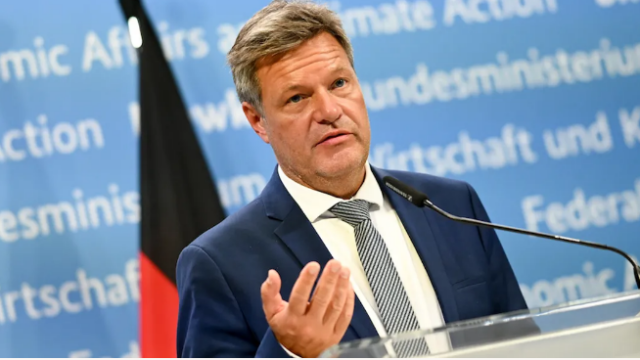German Vice Chancellor Urges China to Stop Redirecting Goods to Russia
The ongoing conflict in Ukraine has prompted some serious diplomatic discussions, and one notable voice in this dialogue is German Vice Chancellor Robert Habeck. Recently, at meetings with Chinese officials in Shanghai, Habeck made a compelling call for China to put a stop to the redirection of European goods to Russia—goods that could potentially fuel the war against Ukraine. This request was made following significant discussions with China’s Trade Minister Wang Wentao and Minister of Industry and Technology Xin Guobin in Beijing.
The Importance of Responsible Trade
Habeck’s message was clear: it’s crucial to ensure that products intended for military use do not make their way from China to Russia. He stated, “If we can guarantee that military-related products are not funneled into Russia from China, it would also enhance economic relations between our countries.” This highlights a pivotal point: compliance could build trust and lead to substantial benefits for both nations. For instance, Germany has long been a key player in global trade, and fostering connections based on mutual respect and responsibility can lead to thriving economic partnerships.
Staggering Trade Statistics
What’s even more alarming is the surge in trade between China and Russia. In 2023 alone, this trade reportedly skyrocketed by over 40%! Much of this increase has been linked to the exchange of energy resources, a lifeline for both nations. Interestingly, a portion of this trade includes dual-use goods—items that can have both civilian and military applications. This raises critical ethical questions about the role of major economies in supporting or undermining global stability.
Broader Implications of the Discussions
The discussions weren’t limited to just trade. Habeck also touched on crucial issues such as energy cooperation and human rights. By addressing these broader concerns, he is signaling the need for a comprehensive approach to international relations that considers not just economic benefits but the moral implications of those partnerships. For example, countries that prioritize human rights in their foreign policy often find themselves better positioned in global negotiations, as seen in various diplomatic scenarios throughout history.
International Reactions and Concerns
The urgency of this situation has been echoed by various leaders around the world. Recent remarks by the UK Defense Minister raised alarms about the potential for China to provide lethal support to Russia in this ongoing conflict. Such developments have triggered international outrage and sparked serious discussions within NATO and among U.S. policymakers. The geopolitical landscape is becoming increasingly complex, and the stakes are higher than ever.
The Call for Responsible Partnerships
As global tensions rise, the interplay between international trade and geopolitical stability is under the microscope. Countries like Germany are advocating for partnerships that do not jeopardize peace. If partnerships are forged on principles of accountability and ethical trading, it enhances the potential for long-term peace and collaboration. Let’s not forget—history teaches us that responsible actions today can lead to a more stable world tomorrow. Just like the old saying goes, “Those who ignore history are doomed to repeat it.”
In a world where every decision can have far-reaching consequences, the call for responsible trade practices is not just a diplomatic formality; it is an urgent necessity. Empathy, ethics, and economic responsibility should guide our actions as we navigate these challenging times. The hope is that with mutual understanding and respect, we can steer the global community toward a more peaceful future.





